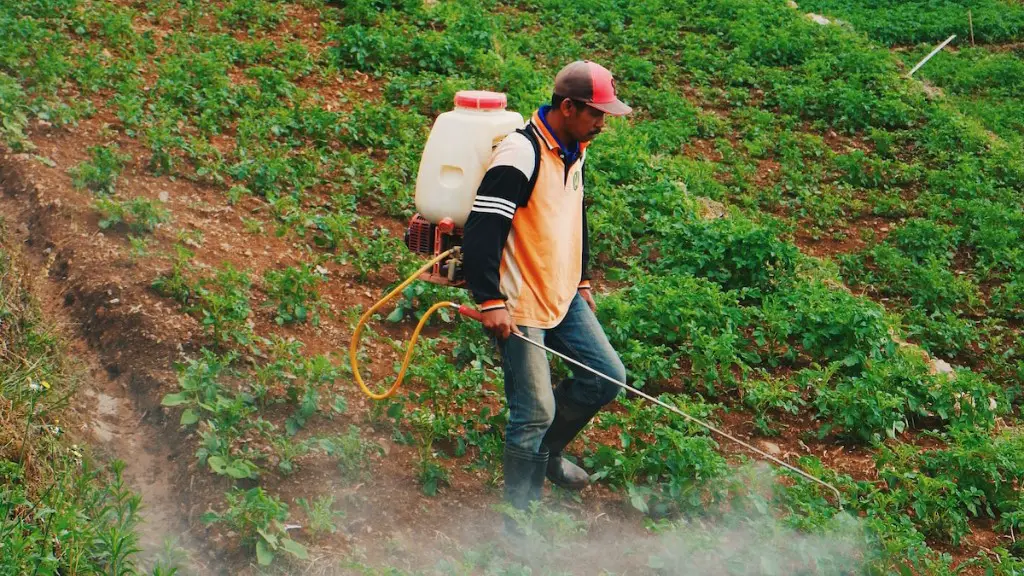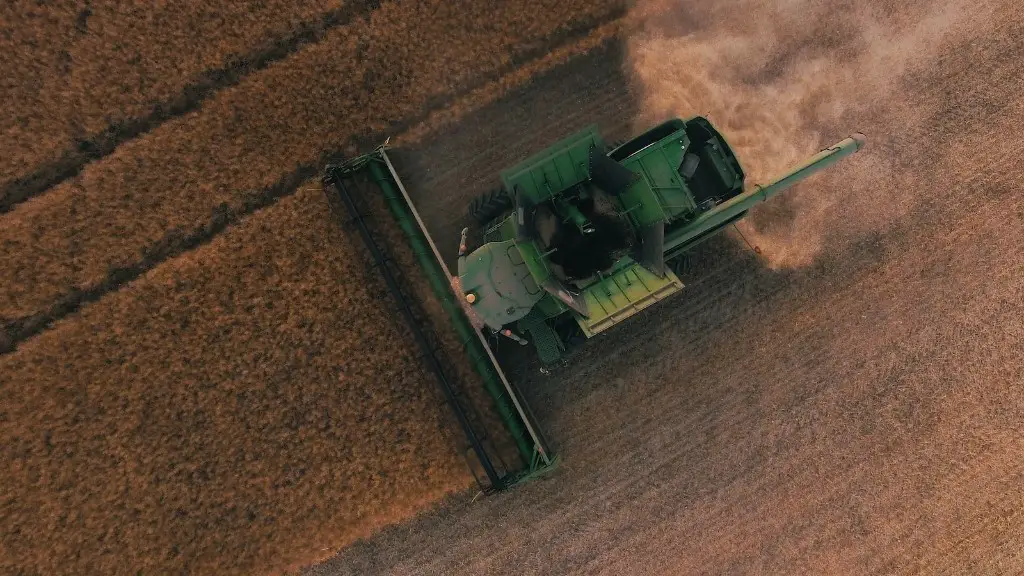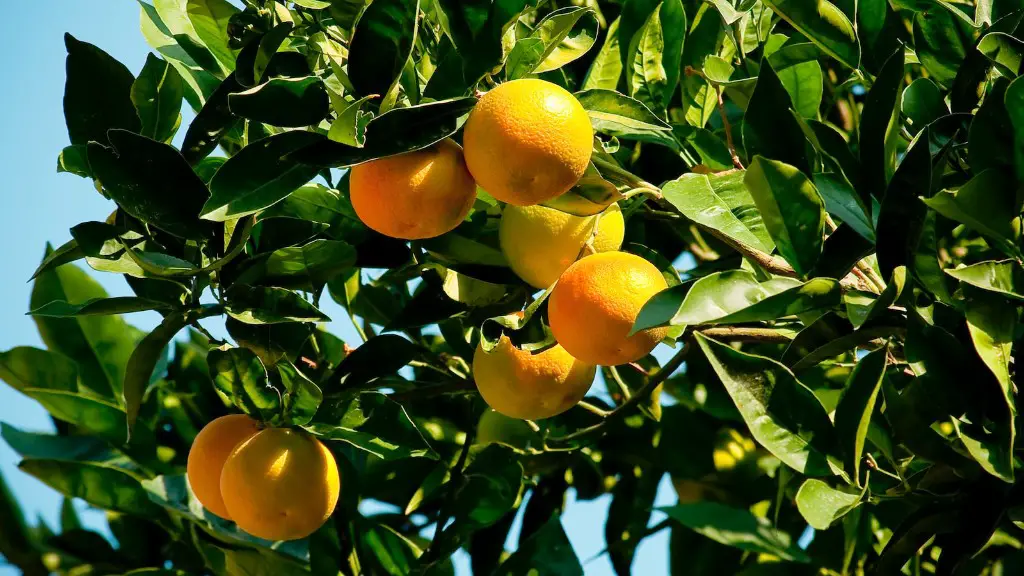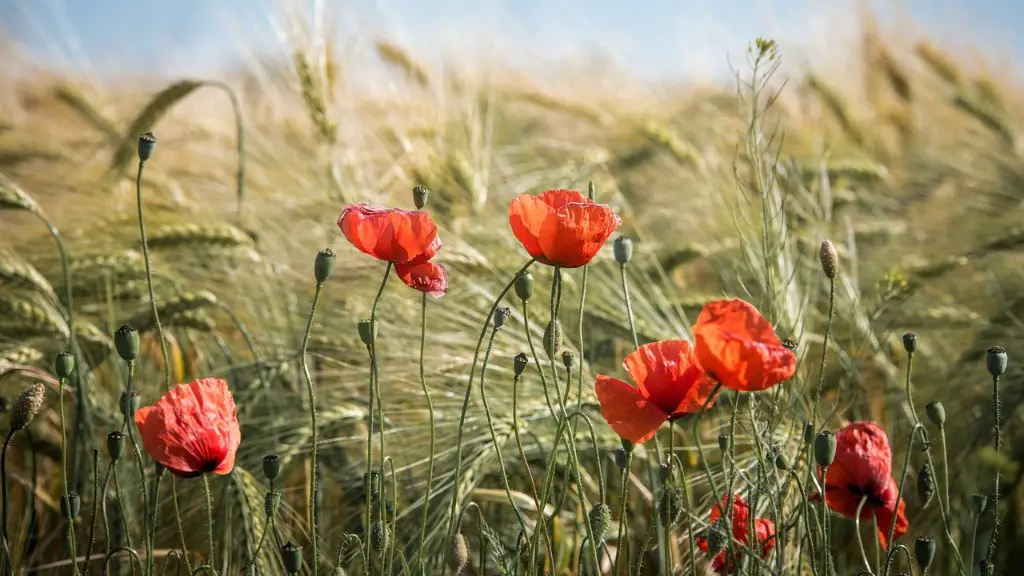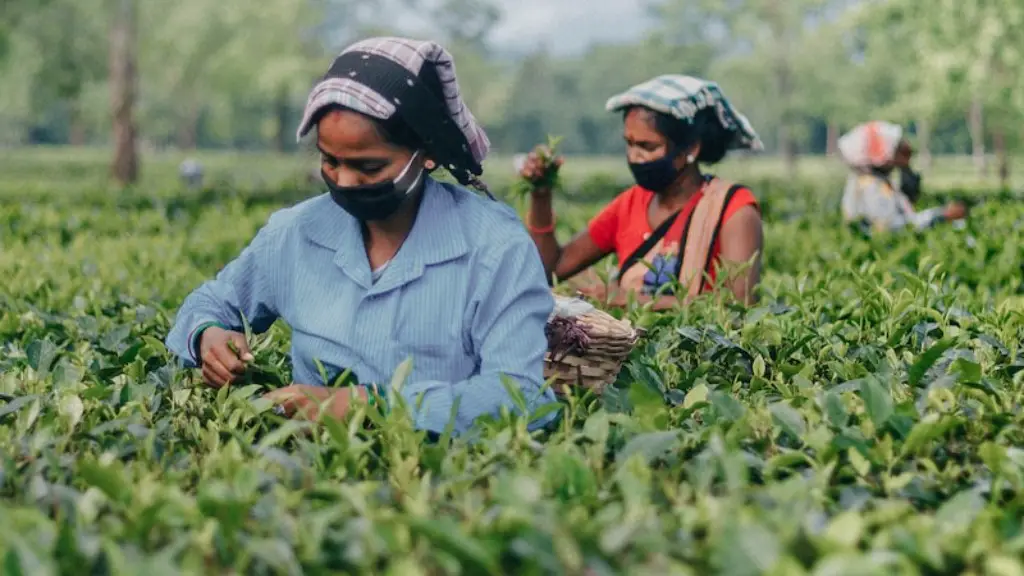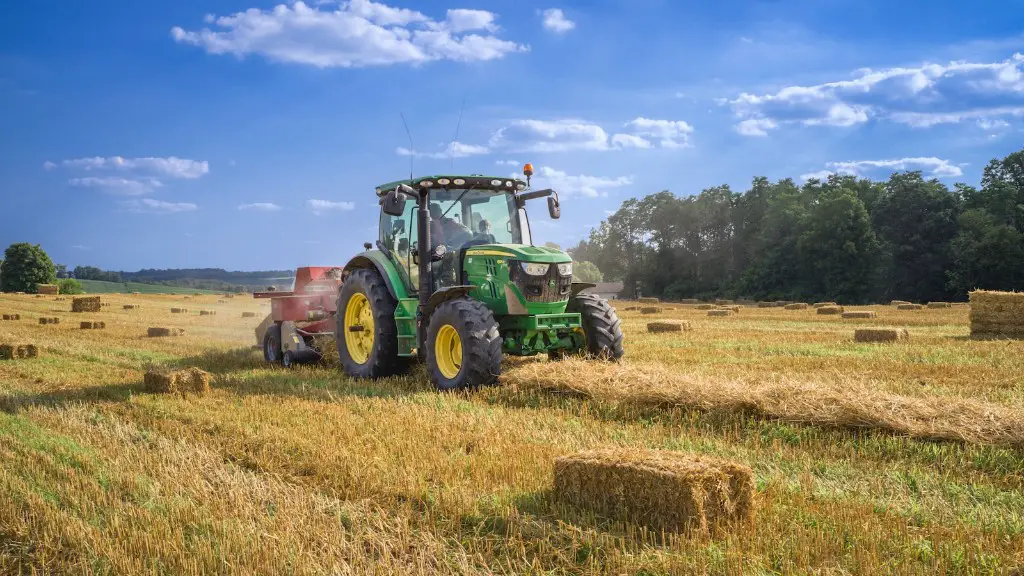”
The following statements about sustainable agriculture are false:
1. Sustainable agriculture is a system of farming that maximizes productive use of resources while minimizing negative environmental impact.
2. Sustainable agriculture is not possible without the use of significant amounts of chemical inputs.
3. Sustainable agriculture is not compatible with large-scale production.
4. Sustainable agriculture does not require the use of genetically modified organisms.
Sustainable agriculture is an environmentally sound and economically viable method of food production. It does not involve the use of pesticides, synthetic fertilizers, or genetically modified organisms.
All of the above statements are true.
Which statement is true of sustainable agriculture?
Sustainable agriculture is a type of agriculture that attempts to satisfy humanity’s needs for food without depleting natural resources or reducing environmental quality.
There is a common misconception that sustainable agriculture is only concerned with improving transportation and food shipping networks. However, this is not the primary focus of sustainable agriculture. While transportation and food shipping networks can be improved as a result of sustainable agriculture practices, the main goals of sustainable agriculture are yield, food security, food systems, and the environment.
What is wrong with sustainable agriculture
The three main threats to agricultural sustainability are arable land, water, and outdated cultivation methods. Arable land is the land that can be used to grow crops, and is a limited resource. Water is also a limited resource, and outdated cultivation methods can lead to depletion of both water and arable land. The general rise in environmental problems also contributes to the weakening of agricultural sustainability.
The addition of chemical fertilisers to increase soil fertility can lead to environmental pollution. These chemicals can pollute the air, water and soil, and can also have an impact on human health.
What is the true definition of sustainable agriculture?
The term ‘sustainable agriculture’ means an integrated system of plant and animal production practices having a site-specific application that will over the long-term: Satisfy human food and fiber needs.
Sustainable agriculture is an approach to food production that integrates three main goals: environmental health, economic profitability, and social equity. A variety of philosophies, policies and practices have contributed to these goals, but a few common themes and principles weave through most definitions of sustainable agriculture.
The main principles of sustainable agriculture include:
• Conservation of natural resources: sustainable agriculture systems should conserve and improve the resource base upon which they rely.
• Efficiency in the use of resources: sustainable agriculture systems should be as efficient as possible in their use of inputs such as water, fertilizer, and energy.
• Enhancement of environmental quality: sustainable agriculture systems should enhance environmental quality by reducing pollution and protecting ecosystems.
• Maintenance of economic viability: sustainable agriculture systems should be economically viable, providing farmers with a decent standard of living and ensuring the long-term viability of the farm enterprise.
• Promotion of social equity: sustainable agriculture systems should promote social equity by providing fair wages and working conditions for farm workers, and providing access to healthy food for all members of society.
Which of the following is not included in the sustainable?
As the cost of renewable energy continues to fall, nuclear power is becoming an increasingly competitive option for base-load electricity generation. Although nuclear plants require a large upfront investment, they have low operating costs and can generate electricity for decades with little to no emissions.
In addition, nuclear power plants have a very small footprint compared to other forms of electricity generation. For example, a 1000 megawatt (MW) nuclear power plant can be built on just over 12 acres of land, while a coal plant of the same size requires 3 times as much land and a solar photovoltaic (PV) plant requires almost 200 times as much land.
Finally, nuclear power plants are an important part of a low-carbon energy system. In order to meet our climate goals, we need to quickly scale up low-carbon energy sources like nuclear power.
There are of course challenges associated with nuclear power, including waste management and safety concerns. But these challenges can be addressed with robust regulations and sound engineering.
Overall, nuclear power is a safe, reliable, and carbon-free option for electricity generation that should be part of our energy mix.
The correct answer is the predominance of cash crops. This answer choice correctly identifies the main point of the passage, which is that cash crops are the main source of income for many farmers in developing countries. This answer choice also correctly uses the key word “predominance” from the question.
What are the 5 main components of sustainable agriculture
Sustainability is about meeting the needs of the present generation without compromising the ability of future generations to meet their own needs. In the context of food and agriculture, this means producing enough food to feed the world’s growing population, while at the same time preserving the natural resources that are essential for food production.
The five key principles of sustainability for food and agriculture are:
1. Increase productivity, employment and value addition in food systems
2. Protect and enhance natural resources
3. Improve livelihoods and foster inclusive economic growth
4. Enhance the resilience of people, communities and ecosystems
5. Adapt governance to new challenges.
These principles are interdependent and need to be addressed in a holistic way if we are to achieve sustainable food and agriculture systems.
Sustainable farming has many disadvantages that make it difficult for farmers to implement and maintain. One of the biggest disadvantages is the limited land use. Sustainable farms are typically small and use traditional methods, which means they can’t produce as much food as large, commercial farms. This makes sustainable farming less profitable and more labor-intensive. Additionally, sustainable farms often have shorter shelf lives for their products because they don’t use artificial preservatives. Finally, one of the most difficult aspects of sustainable farming is reviving soil’s fertility. This process can take years, making it a long-term commitment with no guarantee of success.
What are the pros and cons of sustainable agriculture?
Though sustainable agriculture has many advantages, it also has some drawbacks. One downside is that it can take farmers longer to carry out their farm operations. This is because they often have to take extra care to avoid harming the environment. Another downside is that sustainable agriculture can sometimes be more expensive than conventional methods. This is because sustainable farmers often have to invest in more expensive equipment and pay closer attention to their crops.
There is no one-size-fits-all solution to addressing the triple challenge of feeding a growing population, providing a livelihood for farmers, and protecting the environment. However, we must work together to tackle these challenges if we are to make sustainable progress in any of them. We need to find ways to increase food production while also supporting farmers and protecting our natural resources. This will require innovative thinking and a commitment to making change happen. We can start by making small changes in our own lives, such as eating more locally-grown food, and supporting initiatives that promote sustainable agriculture. Together, we can make a difference.
What are 4 sustainable agriculture practices
Sustainable agriculture practices are those that protect and improve the natural resources upon which agriculture depends, including land, water, air, and biodiversity. They also improve the economic and social well-being of farmers, farm workers, and their communities.
There are many sustainable agriculture practices that farmers can adopt, but some of the most common include:
Rotating crops and embracing diversity: By rotating crops and planting a mix of crops, farmers can reduce the need for inputs like water, fertilizer, and pesticides, and improve soil health.
Planting cover crops and perennials: Cover crops help improve soil health by preventing erosion, providing nutrients, and promoting beneficial microbial activity. Perennial crops, like fruits and nuts, provide farmers with a longer-term source of income and also help improve soil health.
Reducing or eliminating tillage: Tillage is the process of stirring and turning the soil, and it can have harmful consequences like soil erosion and compaction. Reducing or eliminating tillage can help improve soil health and water retention.
Applying integrated pest management (IPM): IPM is a strategy for managing pests that emphasizes the use of cultural, biological, and physical controls, as well as pest-resistant crops. This can
Sustainable agriculture is possible through a number of different farming methods. One popular method is organic farming. This type of farming does not use any synthetic chemicals or pesticides and instead relies on natural methods to power the farm. Another popular sustainable agriculture method is regenerative agriculture. This type of agriculture works to improve the soil health and promote carbon sequestration.
What is the definition of sustainable agriculture quizlet?
Sustainable agriculture is a type of farming that Preserve s the long-term productivity of the land and minimizing pollution. This is typically done by rotating soil-restoring crops with cash crops and reducing the inputs of fertilizer and pesticides.
The main goals of sustainable agriculture are to maintain productive topsoil, keep food safe and wholesome, reduce use of chemical fertilizers/pesticides, and keep farms economically viable. These goals are important in order to create a sustainable food system that can meet the needs of current and future generations.
Conclusion
The statement “sustainable agriculture is a type of agriculture that can be maintained at a constant level” is false.
The following statement about sustainable agriculture is false: “Sustainable agriculture is a type of farming that does not deplete the soil or harm the environment.”
